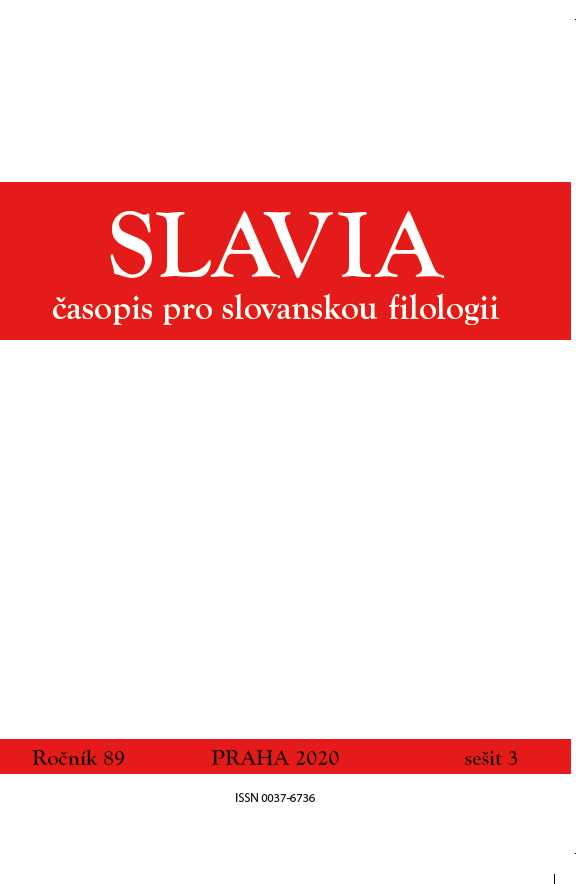О синтаксическом статусе указательного местоимения это в позиции связки
On the Syntax Status of Demonstrative Pronoun это (‘eto’) in Position of Copula
Author(s): Aleksander KiklewiczSubject(s): Syntax, Eastern Slavic Languages
Published by: AV ČR - Akademie věd České republiky - Slovanský ústav and Euroslavica
Keywords: Russian syntax; demonstrative pronoun; grammatical subject; parenthesis; anaphor; topical pause;
Summary/Abstract: This article deals with a particular type of simple sentences with a complex predicate, which includes the Russian demonstrative pronoun это (‘eto’). The author states the prevailing in the linguistic literature view, that such units take the position of the so-called copula. The author presents arguments against treating the pronoun as a copula, taking into account such aspects as: function, distribution, position, intonation, substitution, semantics. The author proves the thesis that the demonstrative pronoun in so-called binominative sentences occupies the position of subject, establishing an anaphoric relation with the noun in preposition, which has the status of parenthesis. Binominative sentences with parenthesis occur in several varieties, while the positions of the right and left collocators by the pronoun may be occupied by nouns (in the nominative), verbs (infinitives), as well as predicative adverbs. The pronoun in binominative sentences with parenthesis occurs in a general-indicative meaning, it has (from a semantic point of view) an expletive character, and the topical pause (between parenthesis and pronoun) serves to emphatical separating of the predicate group.
Journal: Slavia - časopis pro slovanskou filologii
- Issue Year: LXXXIX/2020
- Issue No: 3
- Page Range: 268-289
- Page Count: 22
- Language: Russian
- Content File-PDF

